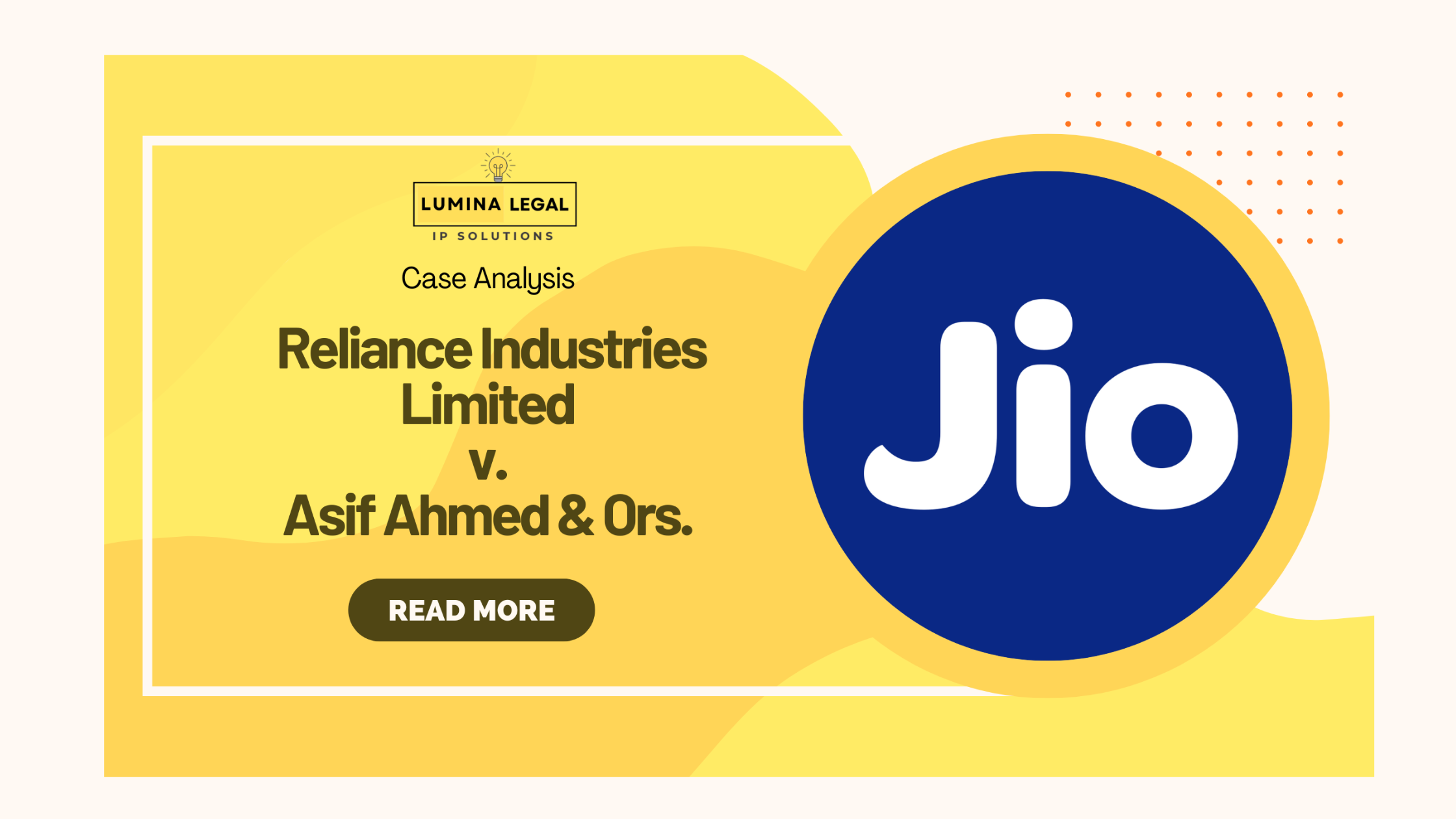Recently Bombay High Court restrained a group of cab operators from using Reliance Industries Limited (RIL) registered trademark “Jio” for their taxi business. The court found that the operators had launched a service under the name “Jio Cabs,” using similar branding, logos, and website domains that could easily confuse consumers into believing that the services was linked to or authorised by Reliance.
The dispute arose Reliance Industries Limited (RIL) discovered that a group of taxi operators had been running their business under the banner “Jio Cabs,” using a website with the domain www.jiocabs.com. The visual elements of the service, including the colour tones and design pattern, make noticeable similarities to Reliance “Jio”which is a well-known branding. The RIL argued that “Jio” is not just a trade name but it is a household brand that represents a wide range of services across telecommunications, broadband, and digital commerce. Due to its wide public recognition, Reliance claimed that the unauthorised use of the word “Jio” by any third party amounted to trademark infringement and passing off.
Bombay High Court agreed with submissions given by the Reliance and observed that the company had made out a strong prima facie case for protection of its intellectual property. The court observed that the defendants’ use of the “Jio” brand for cab services had the clear potential to create deception among the consumers. The court also emphasised that Reliance Jio’s trademark had acquired a well-known status, giving it broader legal protection under Indian trademark law. Citing the balance of convenience, the court observed that any continued misuse of the mark would cause significant and irreparable harm to Reliance’s commercial reputation, while restraining the defendants from using the mark would not deprive them of their right to operate their business under another distinct name.
Accordingly, the High Court issued an interim injunction restraining the cab operators from using the mark “Jio,” the domain name “jiocabs.com,” or any other deceptively similar variant. The court has also directed that no associated logos, advertisements, or online promotions resembling Reliance’s branding be used by the defendants. The injunction ensures that the consumers should not be misled into associating unrelated services with the RIL’s “Jio,” preserving both consumer trust and the distinctiveness of one of India’s most recognised brands.
This decision strengthens the principle that ownership of a trademark extends beyond its original market if the mark has gained substantial public reputation. The “Jio” trademark, though originally tied to telecommunications, is now so deeply rooted and establishedamong Indian consumers that misuse in any different sector also poses a risk of dilution. This case is a learning for businesses that opportunistic appropriation of famous brand names will invite legal action and strict judicial actions.
This case emphasises the growing importance of intellectual property rights enforcement in India’s digital economy. As businesses increasingly expand their presence across sectors, courts are also playing a crucial role in ensuring that brand identity and consumer trust should be preserved.
About the Author:
Pranjal Gupta is a second-year B.B.A. LL.B student at New Law College, Bharati Vidyapeeth (Deemed to be University), Pune. He is keenly interested in exploring diverse facets of law and aims to build a strong foundation in legal research and writing.

